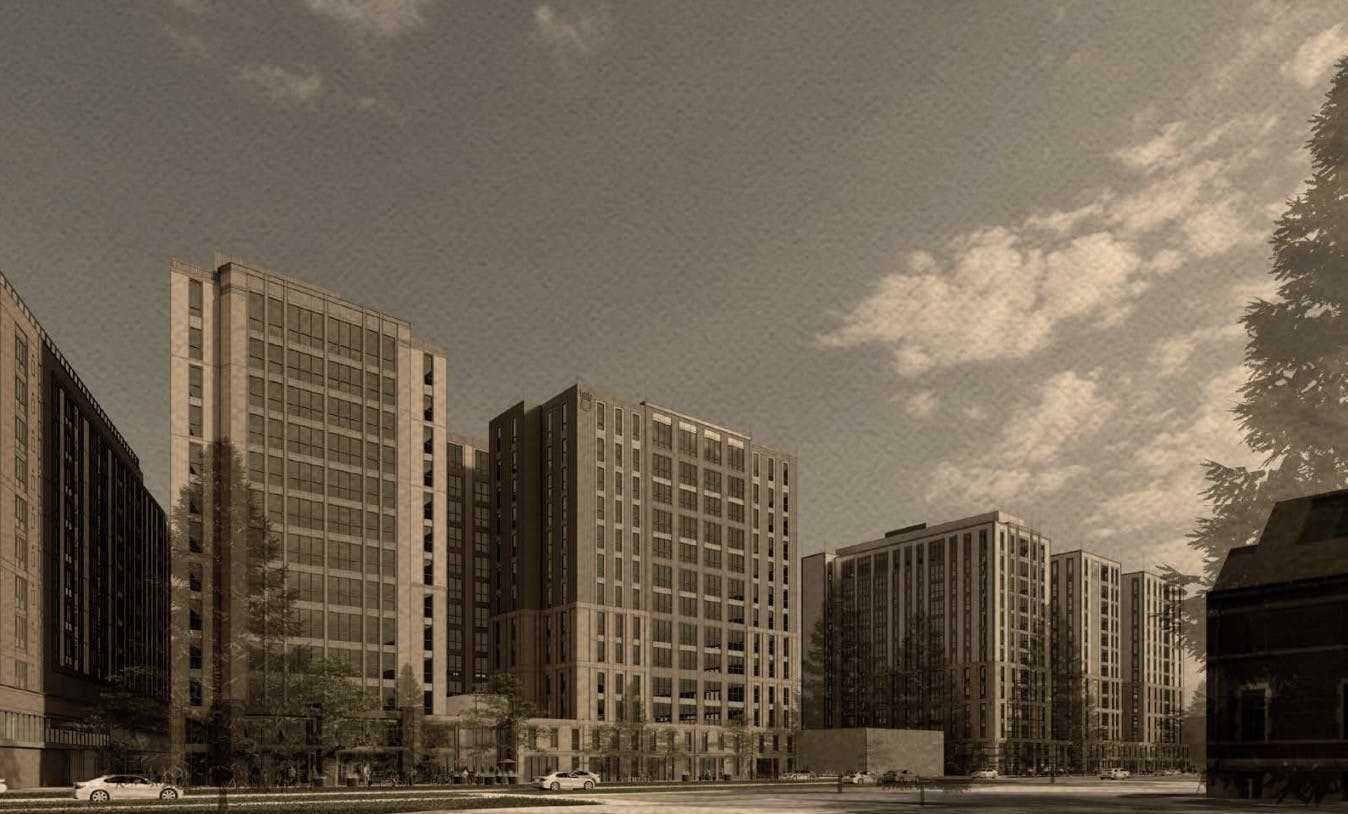It's back to the drawing board for Core Spaces and their Hub on Bogue Street project after being referred back to planning commission at the Feb. 25 East Lansing City Council meeting.
Core representatives asked for the referral after the council amended a couple ordinances. Changes include waiving a minimum height requirement for the first floor and changing the language that allowed a building a maximum of 10 stories and 140 feet to become 10 stories or 140 feet.
The proposal going into the meeting was for two 14 story, 152 foot buildings on both sides of Farm House.
Mayor Ruth Beier said she doesn't like the design, which is split into two buildings because of Farm House's unwillingness to sell.
"I just don't like it. I think it's weird and ugly, and I think it's terrible for that house," Beier said.
Regardless of the building Core proposes, it appears results from East Lansing's housing study will have to come out before the building is approved. A majority of council indicated they won't approve the project without seeing those results.
"If this comes back to us in a month, my position is going to be we need to wait until the housing study (is finished)," Council member Mark Meadows said.
Council member Jessy Gregg has concerns about traffic issues created by delivery vehicles. At the existing Hub, delivery vehicles block off a lane on Grand River to drop off goods. Gregg said she'd like to see a plan to fix that with the Hub on Bogue project.
"It just concerns me when we're talking about something that has got over 1,000 people living in it that are possibly ordering pizza twice a week," she said.
A concern expressed by the public was that the building would leave rental houses empty. Core representatives argued that it would increase competition and make housing more affordable. Council member Lisa Babcock thought this argument was misleading because of the high renting prices the building would offer.
"To me, affordable housing means something entirely different," Babcock said. "To me, it's just disingenuous to use in this context."
Beier said she liked Core's offer to establish an affordability program. Hub developers would put money into a "bank" where the city could loan out or spend money to help convert under rented houses into single-family homes, which they would sell and put the money earned back into the bank, Beier said.
"I like that idea, that makes me much more likely to approve something like this if the housing study warrants anymore student housing," Beier said.
Mayor Pro Tem Aaron Stephens said he thinks the money could help people who can't afford rent, though plans for the affordability program still need to be worked out.
Beier and Stephens also had concerns that the building would create competition with housing on campus and cause friction with Michigan State.
"I can't be creating new enemies. I have enough already," Beier said.
Meadows said he doesn't have a problem creating competition with the university.
"Competition helps students, and it keeps rents down," Meadows said.
Support student media!
Please consider donating to The State News and help fund the future of journalism.
Discussion
Share and discuss “Housing study to postpone Hub 2.0 decision” on social media.







